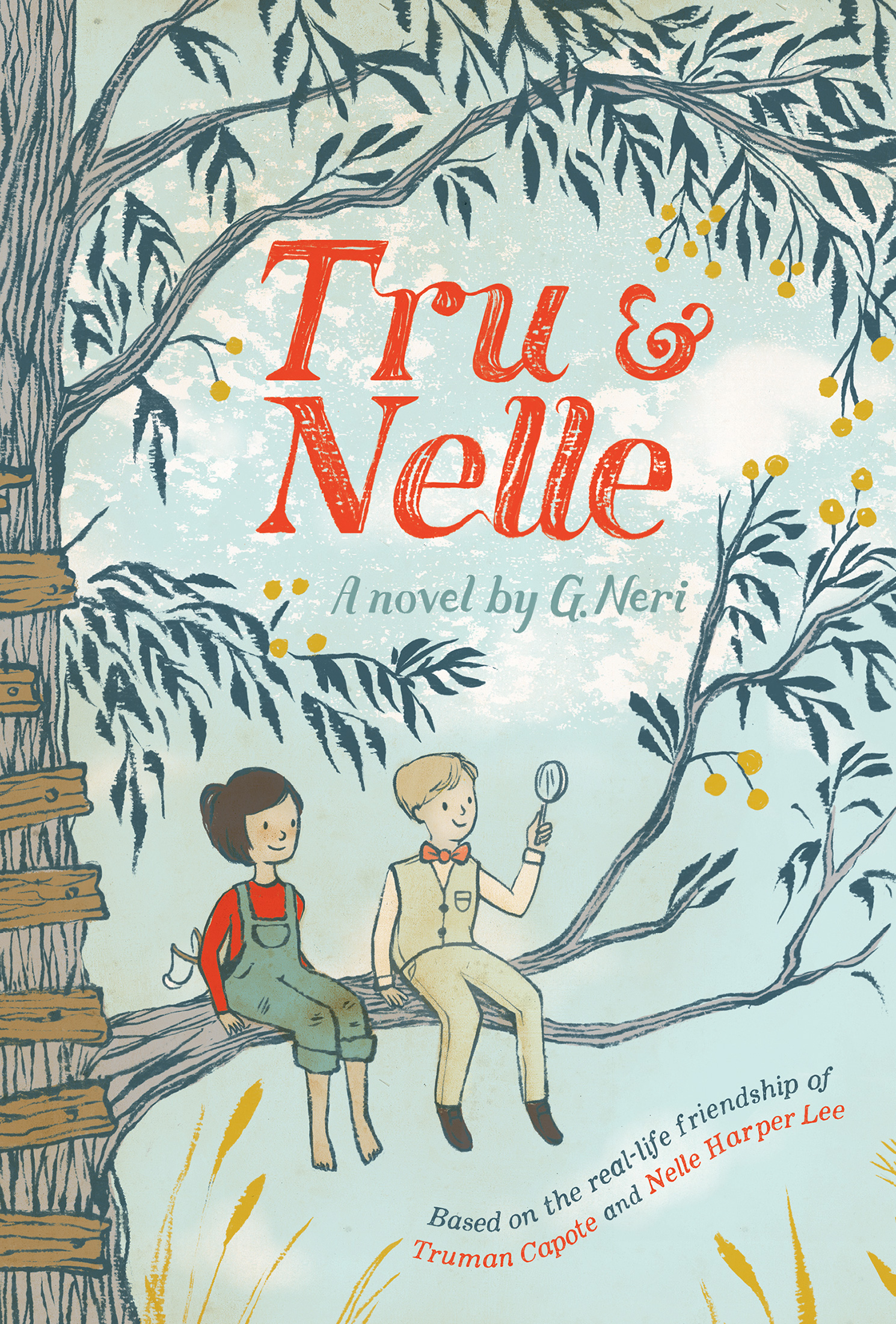![635932179829745704-TruandNelle.jpg [image : 81596846]](http://www.gannett-cdn.com/media/2016/03/10/USATODAY/USATODAY/635932179829745704-TruandNelle.jpg)
“They made for a perfect pair of misfits,” writes G. Neri of the two title characters in Tru & Nelle, his new children's novel, “he too refined to play with the boys; she too much of a tomboy to get along with the girls. And that was okay.”
Better than OK, as it turned out: Nelle and Tru, 6- and 7-year-old neighbors in small-town Alabama in the 1930s, are Harper Lee and Truman Capote, who each became titanic literary figures. Their deep childhood friendship lasted into adulthood; she was his companion as he researched his true-crime masterpiece In Cold Blood, he the model for Dill in To Kill a Mockingbird. The haunting author photo from that book’s first edition, of Lee lying among tall grasses with her eyes cast away from the camera, was taken by Capote.
Tru & Nelle (Houghton Mifflin Harcourt, 323 pp., ages 7-10, *** out of four stars) is a fluid, sweet-tempered account of this amazing American friendship. It’s more worthy than mesmerizing, at times, and perhaps a bit Pollyanna-ish given Lee and Capote’s darkly complicated later lives, but thoughtful, and effectively candid about subjects like race and bullying.
![635932185644994981-GNeri-creditEdward-Linsmier.jpg [image : 81597668]](http://www.gannett-cdn.com/media/2016/03/10/USATODAY/USATODAY/635932185644994981-GNeri-creditEdward-Linsmier.jpg)
The story begins during the Great Depression, when Truman and Nelle Harper (Nelle is Ellen, her grandmother’s name, backwards) bond over Sherlock Holmes. They decide that they want to become detectives too, and set up shop in a treehouse, with the occasional help of a (drastically less gifted) friend, Big Boy. The first case that comes onto their radar involves a theft at the drugstore. Investigating it eventually leads them into a confrontation with Monroeville’s ugliest force, the Ku Klux Klan.
The book’s best moments of drama are personal, however. Truman — already a dandy, “treated by everyone like a delicate blue-blooded prince” — is cruelly abandoned by his father, a con man, and his mother, a beautiful narcissist. Nelle has a wonderful father, A.C., the local lawyer, but her mother is mentally ill. In each other, by Neri’s account, they found a wholeness their families couldn’t provide.
![635932186828886570-TruNelle1.jpg [image : 81597896]](http://www.gannett-cdn.com/media/2016/03/10/USATODAY/USATODAY/635932186828886570-TruNelle1.jpg)
Is that true? Both Lee and Capote were bedeviled by personal issues and conflicts later in life; their friendship ended early, at least in part because of Capote’s envy of his quiet friend’s enormous success. (He snidely thanks her for her “secretarial” help in the acknowledgments to In Cold Blood.) But that’s knowledge for later, and there is a gentle, azalea-scented goodness to Tru & Nelle that young readers may fall for, and which grants space to the racial ugliness of the past without dwelling exclusively on it.
Of the past. As I write this, Lee has been dead for 17 days, which means that Tru & Nelle is now truly historical. It feels a little bit as if the 20th century went with her, to me; did any book define that time more profoundly or lastingly than Mockingbird? And yet the KKK has in recent weeks made an unwelcome return to our own news cycles. Tru & Nelle may be gone; America is never as far from its history as it thinks.
Charles Finch is the author of Home by Nightfall.


